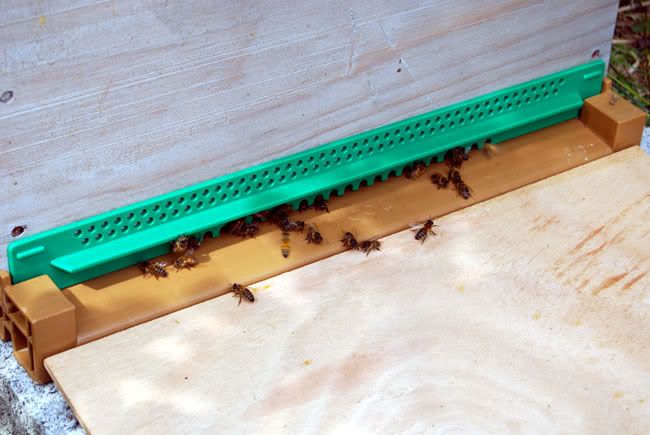Firegazer
House Bee
- Joined
- Sep 5, 2009
- Messages
- 291
- Reaction score
- 0
- Location
- Gloucestershire
- Hive Type
- Langstroth
- Number of Hives
- 3
Reduce the entrance WHEN they don't need it big anymore (September ish?). This improves the bees' odds as they have more individuals inside that tiny gap than the attacking wasps have on the outside - keeps the fight unfair 
Put lots of wasp traps out filled with cheap cider - bees have better taste, wasps don't and die in them. This reduces the wasp population a bit in the area.
Putting traps near hives seems weird to me: "come over here, there's a lovely smell - oh, but don't go for the honey, go for the cheap cider" - seems a bit risky to me.
FG
Put lots of wasp traps out filled with cheap cider - bees have better taste, wasps don't and die in them. This reduces the wasp population a bit in the area.
Putting traps near hives seems weird to me: "come over here, there's a lovely smell - oh, but don't go for the honey, go for the cheap cider" - seems a bit risky to me.
FG





















































 .
.